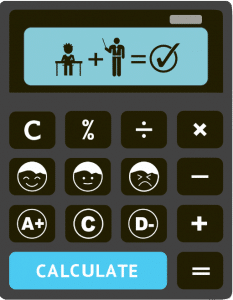Find tutor 🔎
A local tutor can help with QCE Physics
Feeling a bit overwhelmed by QCE Physics? You’re not alone – with all those formulas, tricky calculations, and experiment questions, it’s a lot to juggle. But here’s the good news: you’ve got everything you need to tackle it head-on.
Our past papers, marking guides, and practice resources aren’t just more “stuff” to look at — they’re your secret weapon for spotting patterns, mastering tricky concepts, and sharpening your exam skills. Start now, and you’ll thank yourself later!
QCE Physics Past Papers and Resources
5 Brutally Honest Tips to Dominate the QCE Physics Exam
Let’s be real — QCE Physics isn’t your everyday multiple-choice walk in the park. It’s a battleground of equations, theories, and brain-bending concepts. But here’s the good news: with the right strategies and some solid practice with QCE Physics past papers, you can go from “barely hanging on” to “top of the class.” Ready to get real? Here are 5 no-fluff tips to help you crush it.
1. Master the Art of Reverse Engineering Problems
Here’s the deal: Physics exams don’t reward blind memorization. They reward problem solvers. You’ll notice that many questions in those QCE Physics past papers follow a similar pattern — they just twist the variables. Go back through past paper questions and break them down. Ask yourself, “How did they construct this?” Reverse-engineer the logic and get inside the exam writer’s head. 🔍 Once you see the pattern, you’ll know exactly how to attack it on exam day.
2. Don’t Fear Calculus — Own It
Look, you can’t dodge the calculus questions, so stop trying. The top scorers? They don’t just “get by” with calculus — they master it. Physics loves a good rate-of-change question, so if you’re shaky on differentiation and integration, fix it NOW. Spend a few solid hours reviewing those essential concepts, then apply them in past paper problems. The more you confront them, the less terrifying they become. Trust us on this one — it’s a game-changer. ✨
3. Stop Skimming Over Those Theory Questions
We get it. Equations feel more “scientific” than words. But if you think theory questions are “easier,” you’re fooling yourself. Those “explain” and “justify” questions can make or break your score. The trick? Be clear, be concise, and always link it back to the physics principles. Look through QCE Physics past papers and check how top-model answers are written. See how they tie every explanation back to the core concepts? Do that. No more vague fluff like “it just works this way” — be precise, or prepare for half marks.
4. Don’t Just Memorize Formulas — Understand Them
Every student has that “magic list” of formulas they frantically cram before exam day. But here’s a hard truth: formulas alone won’t save you. QCE Physics loves to make you prove, derive, or twist formulas into weird new shapes. If you only know the final form, you’re toast. Spend time understanding where the big hitters (like F = ma, E = mc², and v = u + at) actually come from. Know the “why” behind each variable. It’s slower at first, but when the exam throws you a curveball, you’ll be ready to swing.
5. Prioritize the Weird, Not the Easy
Most students stick to what they “know” because it feels good to get questions right. But that’s a trap. The toughest questions are the ones that will separate you from the pack. Those curveball problems with “combine these 3 concepts into 1” — yeah, those are gold. Hunt them down in practice exams, work them over, and refuse to let them beat you. Why? Because if they’re hard for you, they’re hard for everyone. Conquer them, and you’re on your way to a top score.
The path to mastering QCE Physics isn’t for the faint of heart, but it’s also not rocket science (well, except for the actual rocket science questions) 🚀. Use these no-nonsense strategies, tackle plenty of QCE Physics past papers, and face every challenge head-on. No shortcuts, no excuses — just results.
What they say about our tutoring
Mitchell is happy with the new tutor, thank you. Sean is a good communicator which makes Mitchell feel more relaxed thanks again.
We are very happy with Sheetal. Timothy is making great progress and we are happy to continue. We will have Tim do his Navy test in a few weeks and if we need to do a bridging course we will ask Sheetal to tutor him with that as well.

Our philosophy to teaching is based upon a firm belief that every child can succeed at maths or any other subject, given the proper encouragement, motivation and tools. We believe that a tutor’s …






